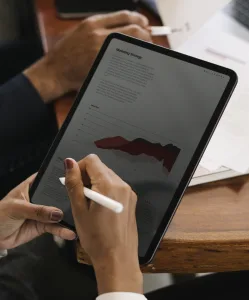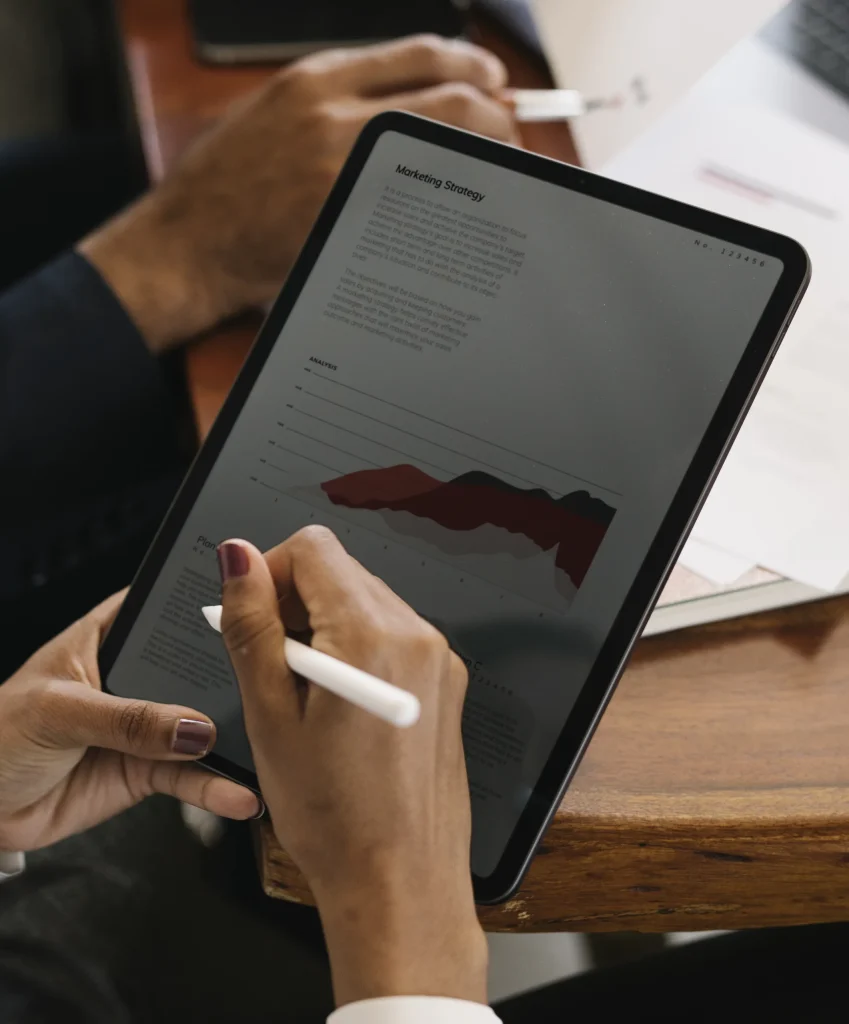Have you ever made a purchase simply because you were afraid of missing out? It’s a feeling that we have all experienced at one time or another. FOMO, or the fear of missing out, is a powerful psychological trigger that can influence our decision making when it comes to buying products and services.
In this article, we will explore how businesses use scarcity and FOMO to drive consumer behaviour. We’ll also discuss other elements of Robert Cialdini’s six principles of influence that can be used by marketers to persuade people to take action, with a particular focus on the principle of scarcity. By the end of this article, you’ll understand how urgency tactics work, and how you can use them to your advantage in your marketing campaigns while avoiding emotional manipulation.
The Psychological Power of FOMO
 FOMO (fear of missing out) is a powerful psychological trigger that impacts how people interact with the world around them. It’s the feeling of anxiety or insecurity that arises when someone perceives others are having a better time or enjoying something more than they are.
FOMO (fear of missing out) is a powerful psychological trigger that impacts how people interact with the world around them. It’s the feeling of anxiety or insecurity that arises when someone perceives others are having a better time or enjoying something more than they are.
By tapping into FOMO, marketers can create a sense of urgency and increase conversions through time-sensitive offers or limited-time promotions. Studies show that consumers are more likely to make impulsive purchases when they feel like they might miss out on a good deal.
Digital addiction and social anxiety can make FOMO even stronger. Social media constantly reminds us of what our peers are doing, and we may feel anxious about being left behind. Marketers can use this to their advantage by creating content geared toward specific groups or using peer pressure tactics to prompt action.
However, it’s important not to cross the line into emotional manipulation or scarcity mindset marketing, which can be damaging and unethical. Instead, focus on building brand loyalty through genuine value propositions and honest marketing tactics that respect your audience’s decision-making processes.
In conclusion, understanding the psychological power of FOMO is crucial for marketers looking to influence consumer behaviour. By creating urgency through limited-time offers and appealing to customers’ emotions in a respectful manner, brands can build lasting relationships with their target audience while generating increased sales.
Using Scarcity as a Principle of Influence
Scarcity is a powerful psychological trigger that taps into our fear of missing out (FOMO). As social creatures, we are wired to seek connection and belonging. We often make decisions based on what others are doing or what they have, especially when we feel like we might be left out.
Marketers have long used scarcity as a principle of influence to promote their products or services. Limited-time offers, time-sensitive promotions, and exclusive deals all tap into our sense of urgency and scarcity mindset.
Research has shown that scarcity can lead to increased brand loyalty and impulse buying behaviour. It can also create a sense of peer pressure and digital addiction, as consumers strive to stay connected and up-to-date with the latest trends.
Using scarcity in marketing tactics should be approached with caution. Emotional manipulation can backfire if consumers feel like they are being taken advantage of or pressured into making a purchase. However, when used ethically, scarcity can be an effective tool for influencing consumer behaviour.
In summary, understanding how scarcity works as a principle of influence can help marketers create compelling messages that resonate with their target audience. By tapping into FOMO and creating a sense of urgency through time-sensitive offers and limited availability, marketers can motivate consumers to take action and increase brand loyalty.
Real-world Examples of Scarcity in Marketing
Scarcity is a powerful psychological trigger that can influence our decision-making process. In marketing, scarcity is often used to create urgency and increase sales. Real-world examples of scarcity in marketing are all around us.
Limited-time offers are a classic example of scarcity. Retailers often offer discounts or promotions for a limited time only, creating a sense of urgency and encouraging customers to make a purchase. Flash sales, which are brief periods where products are heavily discounted, use the same principle. These tactics work because they tap into our fear of missing out (FOMO) on a good deal.
Countdown timers are another common tactic used by marketers to instil a sense of urgency. Countdowns create a deadline that pushes customers to take action before time runs out. This is particularly effective when combined with limited-time offers.
Airlines also use scarcity tactics to encourage booking. By displaying the number of seats left at a certain price point, airlines create a sense of urgency and scarcity around the best deals available. This can be especially effective during peak travel periods when demand is high.
Other examples of scarcity tactics include time-sensitive offers and urgency tactics like “buy now” buttons or “limited stock” notices. These tactics tap into our natural cognitive biases and emotional responses, making them powerful tools for influencing consumer behaviour.
However, it’s important to note that using scarcity as a marketing tactic can also be seen as emotional manipulation and may lead to negative consequences such as digital addiction or impulse buying. As consumers become more aware of these tactics, brands need to use them responsibly and transparently while building brand loyalty through authentic engagement with their customers.
The Power of Scarcity on Consumer Behaviour

Have you ever felt a sudden urge to buy something just because it’s labelled as “limited edition” or “only a few left in stock?” That’s the power of scarcity at work.
Scarcity is a psychological trigger that creates a fear of missing out (FOMO) and can influence consumer behaviour. Research has shown that scarcity can be an effective marketing tactic for creating urgency and driving sales.
In fact, a study by Wiedmann and Hennigs found that scarcity and exclusivity were the most significant predictors of luxury brand purchase intention. Creating a sense of scarcity and exclusivity is important for luxury brands because it enhances the perceived value of the product and creates an emotional attachment to the brand.
But scarcity isn’t limited to luxury brands. It can be applied to any product or service. Time-sensitive offers, limited-time discounts, and even low stock alerts can all create a sense of urgency among consumers.
However, it’s important not to cross the line into emotional manipulation or peer pressure tactics. Scarcity should be used ethically and transparently so as not to erode trust with your customers.
By understanding the power of scarcity on consumer behaviour, businesses can strategically use this tactic to influence purchasing decisions while also maintaining trust with their audience.
Incorporating Scarcity and FOMO in Marketing and Sales Campaigns
Incorporating scarcity and FOMO (fear of missing out) into marketing and sales campaigns can be a powerful way to drive consumer behaviour. Consumers are more likely to make a purchase if they feel like they might miss out on an opportunity or if there is a limited supply of the product or service.
Scarcity and FOMO are psychological triggers that tap into social anxiety and the scarcity mindset, which can be effective in influencing decision-making. Urgency tactics, time-sensitive offers, and other behavioural economics principles can also be used to create a sense of exclusivity and enhance the perceived value of products and services.
However, it’s important for businesses to use these tactics ethically and transparently. Misleading or manipulative advertising will damage brand loyalty and have long-term consequences. Consumers are smart enough to see through tricks, so it’s important to ensure that your messaging is honest, clear, and adds genuine value.
By incorporating FOMO into your marketing strategy responsibly, you can influence customer behaviour positively. It will help motivate shoppers to take action faster by creating an emotional connection with them.
The next few sections will provide specific examples on how businesses can use FOMO effectively across different channels such as email marketing, social media platforms, websites etc.
Using Limited-time Offers and Flash Sales
 As social creatures, we are wired to crave a sense of belonging and validation, making us susceptible to FOMO or fear of missing out. This fear can be harnessed by marketers through limited-time offers and flash sales.
As social creatures, we are wired to crave a sense of belonging and validation, making us susceptible to FOMO or fear of missing out. This fear can be harnessed by marketers through limited-time offers and flash sales.
By creating a sense of scarcity, such as offering a discount or free trial for a limited time only, customers are more likely to take action before the offer expires. Urgency tactics tap into our psychological triggers and decision-making biases, triggering an impulse buying behaviour that can result in increased sales.
One key benefit of using time-sensitive offers is the potential for increased brand loyalty. Customers who take advantage of these offers often feel like they have stumbled onto something exclusive, giving them a sense of pride and attachment to the brand.
However, it’s important to use ethical marketing tactics when using FOMO to influence consumer behaviour. Avoid emotional manipulation or peer pressure tactics that could result in negative consumer experiences and a loss of trust in your brand.
Instead, focus on creating genuine urgency through digital addiction-reducing techniques such as clear communication about the offer end date and maintaining transparency about how many items or services are available at the discounted price.
By leveraging behavioural economics principles with ethical marketing practices, you can tap into the power of FOMO without taking advantage of consumers.
Creating Social Proof to Enhance Scarcity
Creating a sense of scarcity can be a powerful way to influence customers using FOMO. Social proof is a great way to achieve this, by demonstrating that other people are interested in the product or service. This generates the fear of missing out (FOMO) and creates urgency that drives customers to make purchases.
One approach is to display the number of items sold or the number of people who have already purchased the product. For instance, “500 people have already booked their tickets today”. Or “Only 3 seats left for this event! Book now before it’s too late”. By showing how many others have already shown interest in the product, you can create a sense of exclusivity and generate momentum around your brand.
Another effective way to increase FOMO through social proof is by sharing customer experiences and feedback. Sharing positive reviews from happy customers with your audience shows them that others have had success with your product, creating trust and credibility with your brand.
This tactic works best when combined with time-sensitive offers, such as limited-time discounts or exclusive deals for members only. Not only does it create a sense of urgency but also allows you to target specific groups of loyal customers to build brand loyalty.
In conclusion, social anxiety and fear of missing out are powerful psychological triggers used in marketing tactics. They can be used effectively when they’re combined with other tactics such as scarcity mindset, peer pressure, and digital addiction. By using urgency tactics and behavioural economics principles like decision-making bias, impulse buying behaviour can be induced while positively affecting consumer behaviour towards better brand loyalty & satisfaction levels.
Creating Exclusivity through Limited Edition Products and VIP Experiences
 Creating exclusivity through limited edition products and VIP experiences can be a powerful way to influence customers using FOMO (Fear of Missing Out). When people feel like they are part of an exclusive group or have access to something that others don’t, it triggers social anxiety and activates the scarcity mindset.
Creating exclusivity through limited edition products and VIP experiences can be a powerful way to influence customers using FOMO (Fear of Missing Out). When people feel like they are part of an exclusive group or have access to something that others don’t, it triggers social anxiety and activates the scarcity mindset.
Marketing tactics that create a sense of urgency and use time-sensitive offers are effective because of this psychological trigger. It’s all about tapping into the consumer’s decision-making biases and impulse buying tendencies. Brands can leverage FOMO by offering VIP experiences or limited edition products.
For example, clothing brand Supreme is a master at creating hype around their releases by limiting their stock which creates demand. They sell out within minutes, even seconds in some cases, creating exclusivity around their products. This results in increased brand loyalty from consumers who want to be part of this exclusive community.
Similarly, luxury brands often offer VIP experiences to their loyal customers such as private shopping events, exclusive invitations, and personalised services. These experiences make customers feel valued and appreciated while also giving them a sense of exclusivity.
By using FOMO tactics such as limited edition products or VIP experiences, businesses can create a sense of urgency and scarcity mindset among their target audience. This triggers emotional responses that lead to stronger customer engagement and ultimately drives sales.
Conclusion
In conclusion, using FOMO to influence consumer behaviour can be a powerful marketing tool when used ethically and responsibly. By understanding the psychology behind scarcity and leveraging the fear of missing out, businesses can create urgency in their offers and drive conversions. However, it’s important not to rely too heavily on these tactics or use them in a manipulative way that exploits consumers’ anxieties or insecurities.
Ultimately, the most effective marketing strategies are those that prioritise transparency, authenticity, and genuine value for the consumer. By building trust and credibility with your audience through informative content, engaging social media presence, and ethical business practices, you can cultivate a loyal customer base that will remain devoted over time. So don’t forget to balance your FOMO-based tactics with a long-term focus on building meaningful relationships with your customers – after all, it’s not just about making sales today but creating a lasting impact on your brand’s reputation and success.
If this has you interested in the principles of influence, you need Robert Cialdini’s books Influence and Pre-Suasion. If you purchase these books using my links, you will pay no extra but you will be supporting the blog.
